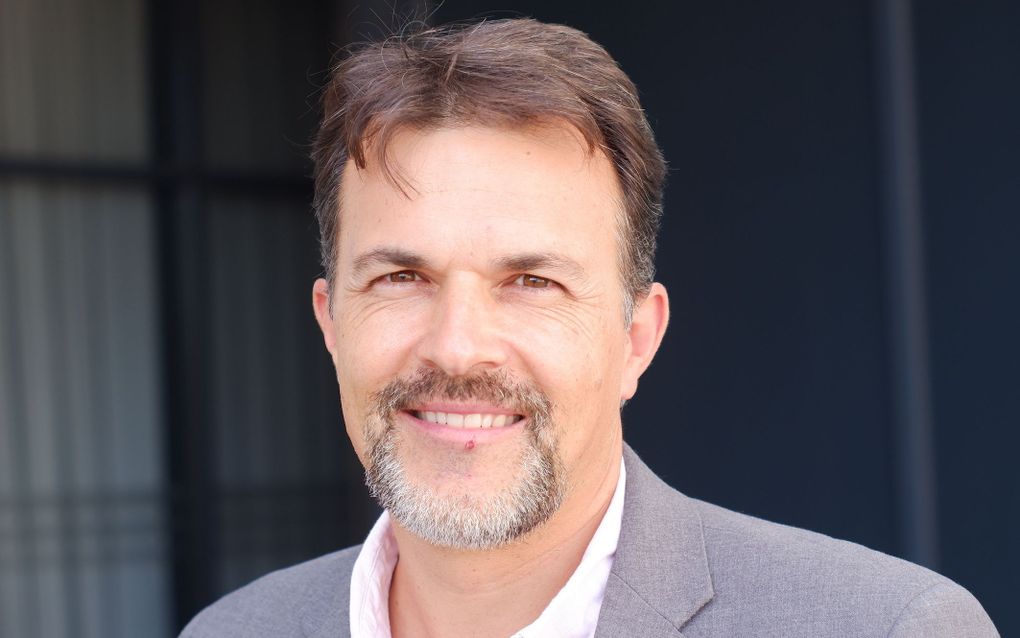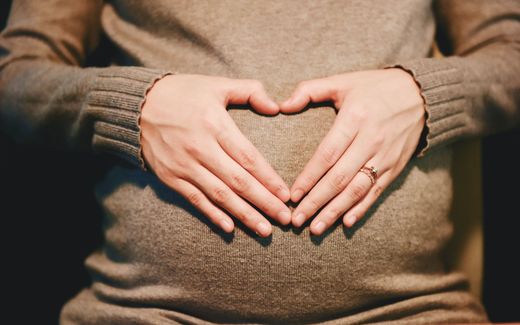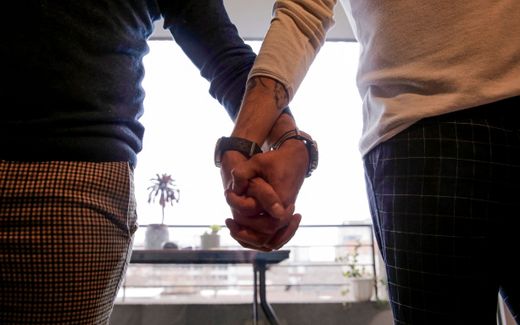Swiss Member of Parliament Marc Jost: Seeking the best for the city
31-12-2022
Central Europe
Norbert Schäfer, PRO

Jost. Photo CNE
Central Europe
Until recently, he headed the Swiss Evangelical Alliance; now he sits in Parliament as a member of the National Council. In this interview, Marc Jost speaks to the German magazine PRO Medienmagazin about Christians in politics, marriage for all, and why his political year begins with skiing.
Mr Jost, you have been part of the National Council for about a month. The next elections are scheduled for October 2023. When does the election campaign start?
Marc Jost laughs: The day before yesterday. When I took office, it was actually the start of the election campaign. In any case, many of my colleagues have already launched their election campaigns.
As a Christian, you are a member of the Evangelical People's Party. What are your themes?
The EPP is committed to an intact environment, respectful coexistence in Switzerland, and strong families. And I personally –also through my professional and personal history– focus on topics of international cooperation and migration and asylum policy. The issues related to the relationship between the state and religion are also very familiar and important to me.
Most of the National Council voted to ban conversion therapies. You voted against the majority. In Germany, two camps have formed among Evangelicals over homosexuality, church and conversion. The debate was sometimes quite heated. What were your reactions?
It has stayed very calm. Two years ago in Switzerland, we debated marriage for all. It was very intense at times. I was in a very exposed position against marriage for all. As the Evangelical Alliance, we took a stand at the time. We contributed to the debate respectfully and constructively, with a view to the well-being of the children. The conversion therapy debate is something of a continuation of that debate. In this sense, the decision has not caused any great waves. There have been some snarky comments on social media. Still, it has remained very quiet relative to what I've also experienced over the past two years. At that time, I also received very indecent and low-level letters in the mail.
Homosexuality and conversion therapy are topics that many no longer dare to debate. I also notice that in the Bundeshaus. From my point of view, there hasn't been an in-depth debate yet.
We come from the World Climate Conference. How do you explain to your children how the climate and the environment are doing?
Our four teenager children are very sensitive to the topic. You ask me why the wheels of democracy grind so slowly in Switzerland and why the economy has not yet achieved the net zero balance for energy. Then I'm already in trouble explaining things to the children and have to admit that the lengthy decision-making process is a dark side of democracy.
In Germany, climate activism is radicalising. People glued themselves to streets and runways in protest. How do you assess the tension between climate protest and the rule of law.
We also know such radical protest measures in Switzerland. On the one hand, I understand the feeling of powerlessness and dismay among the people who are now resorting to such radical measures. The protest actions receive attention and media coverage. This can serve to ensure that we in the Federal Palace stay tuned to the topic and are not distracted. On the other hand, I find these protests beside the point and not productive. I do not support these measures. As a politician, I want to seek solutions with everyone who is of goodwill.
Here the radical form of protest has also received the backing of church leaders. Do such climate protests meet with understanding or, rather, a lack of understanding among Christians in Switzerland?
First, I must specify that the protest movement has changed. From my point of view, Fridays for Future, for example, was a very provocative but constructive movement and was largely well-received in the churches in Switzerland. The Evangelical Alliance in Switzerland has a working group for climate, energy and the environment. A more radical Christian youth movement is also present and welcomed there. However, their protest actions were always characterized by a positive attitude that did not have to resort to destructive, illegal means. But the mood has changed in recent months. The public and the churches no longer take the latest protests as positive but are rather critical of this form
From my point of view, the ecological movement and commitment to responsibility for creation have a long tradition in the regional churches than in the free churches. But in the last 20 years, the free churches have also become more and more active in these questions, and there has been a positive development towards more responsibility for creation, the environment and the climate.
In what responsibility do you see Christians when it comes to environmental protection?
I see Christians at the forefront of taking responsibility for creation. From my point of view, from a theological point of view, this is a task for us Christians. From the creation report, from the first texts of the Bible, I see Christians as having a responsibility to cultivate and preserve this creation. Of course, there is a lot of room for interpretation regarding how this should be done. But I think it is indisputable that we as Christians should think about it and take responsibility for our actions and actions.
Have you set a motto for your political activities?
I have adopted a motto from a former government official that is derived from the book of Jeremiah in the Bible. It says: When the world is doing well, Switzerland is doing well too. "Seek the best for the city..." is also in the biblical text and aims to mean that if the people in Babylon are doing well, then the people of God who are in exile there are also doing well. For me, it expresses that as wealthy and secure Swiss people, we are responsible for the world. Not just out of selflessness but also because we ourselves are dependent on Europe, Africa, and the whole world.
What can Germans learn from Swiss politicians?
Citizens in Germany can only sometimes vote on factual issues. I see this participation in Switzerland as a great added value. When citizens can participate in important decisions, acceptance of politics and political work automatically increases because they feel part of the whole. That would be something that could really be taken up in Germany or should even be taken up at EU level, so that the acceptance of all political decisions by the population at large is better accepted. We also don't know long-term positions of power in Switzerland. A Federal President is only in office for one year. Too much power corrupts. You can learn from that too.
How do you start the new year?
With a parliamentary ski race in Davos. British and Swiss politicians and parliamentarians meet there to ski and carry out a slalom and a giant slalom. In addition to having fun, it is also about discussions and networking between British and Swiss personalities.
This article was translated by CNE.news and previously published in the German Christian magazine PRO on December 30th, 2022.
Related Articles





